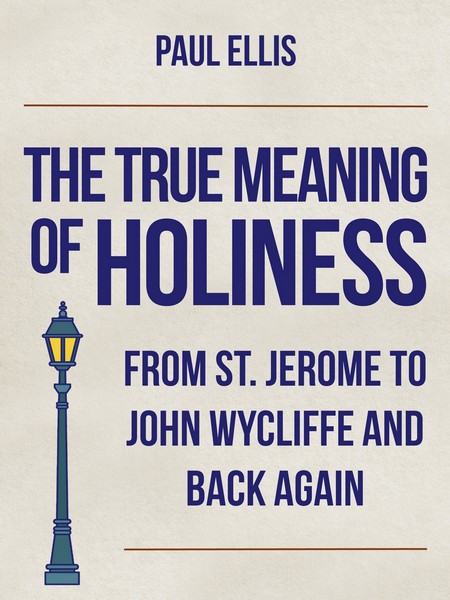Clik here to view.

When I was a teenager, I was involved in a band with some church friends. There were four of us in the band and I played the keyboard. One day, I got in an argument with the guitarist. It was an argument that Christian musicians have been having for centuries.
My friend: “We’re a Christian band. We should only play Christian music.”
Me: “I think we can play anything as long as it it’s good, excellent, and praiseworthy.”
My friend: “No, there’s sacred and secular music. We should have nothing to do with worldly music.”
Me: “To the pure, all things are pure.”
I didn’t realize it at the time, but we were having an argument about the meaning of holiness.
It didn’t end well. Some time later, the band broke up.
The argument I had with my friend encapsulated one of the deepest sources of division in the church. It has to do with the true meaning of holiness. What is holiness?
Two kinds of holiness
We might say there are two kinds of holiness. There’s old covenant holiness and new covenant holiness. There’s Moses-holiness and Jesus-holiness.
And because many people don’t know the difference, we end up arguing about things like music.
Holiness may be the most important word in your vocabulary. Your definition of holiness affects the music you listen to, the books you read, and the friends you have.
How you define holiness, is how you define yourself.
What does it mean to be holy?
Under Moses, holiness was something you got by running away from things. You ran from sin and temptation and unclean people.
But the Jesus kind of holiness runs from nothing. It shines in dark places. It dines with sinners and converses with foreigners.
Be renewed in the spirit of your mind and that ye put on the new man, which after God is created in righteousness and true holiness. (Ephesians 4:23–24, KJV)
True holiness, which comes from God, can be distinguished counterfeit holiness which is manmade.
True holiness, like true righteousness, is not something we earn but a gift we receive. The moment you were put in Christ, you received his righteousness and holiness.
It is because of him that you are in Christ Jesus, who has become for us wisdom from God – that is, our righteousness, holiness and redemption. (1 Corinthians 1:30, NIV)
The reaction of my bandmate illustrates how manmade holiness is defined by the lines it draws. “This is sacred, but that is secular. This is clean, but that is unclean.”
Manmade holiness separates us from our neighbors and causes us to hide inside our temples. Manmade holiness says:
“Your secular job is inferior to full-time ministry.”
“You are not allowed to dance or go to parties or do worldly things.”
“Even though it’s an hour away, you should send your kids to the Christian school.”
“To win the culture war we must boycott the latest movie/Disneyland/Walmart.”
Manmade religion leaves you anxious that you might stray across the holiness divide into the realm of the unclean. It causes you to distance yourself from the world when Jesus prayed that we would be sanctified in it (John 17:15–18).
The pursuit of manmade holiness has made the church tribal and Pharisaical.
Instead of shining like stars, we’re cursing the darkness.
Instead of influencing those around us, we’re hiding in our sanctuaries.
Instead of leading the way, we’re criticizing those at the front.
If only we had a better definition of holiness: Jesus is our holiness from God.
When Jesus, the Holy One of God, visited sinners, he did not become unholy or unhealthy. Rather than being tainted by their sin, he “contaminated” them with the love of a holy and wholesome God.
The Holy One healed the broken and made them whole.
—–
Want to go deeper? Check out my new study note “The True Meaning of Holiness: From St. Jerome to John Wycliffe and Back Again.” In this 20-page note I tell the story of how the word holiness came to be shaped by the worship of idols and the writing of the Latin Vulgate. I discuss John Wycliffe’s heroic attempts to restore the word to its original meaning. Drawing on the work of Charles Finney, A.W. Tozer, Watchman Nee and others, I show how the church is split over two very different definitions of holiness. Holiness – it’s better than you think!
Ten years in the making, the study note is now in Paul’s Library (Patreon).

